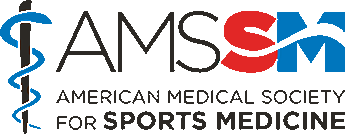What is it?
Acute mountain sickness pertains to group of symptoms that can occur when one quickly gains altitude, like when traveling to the mountains to hike or ski. This condition usually occurs at altitudes above 2500 m (8200 ft), but can affect people at altitudes as low as 2000 m (6500 ft). It is caused by the smaller amount of oxygen available to breathe at higher altitudes.
Symptoms
The most comon symptom of acute mountain sickness is headache, but nausea, vomiting, dizziness, fatigue, and insomnia (inability to sleep) are also common.
Sports Medicine Evaluation
A physician suspicious of acute mountain sickness will ask questions to assess mental function, as well as listen to breath sounds with a stethoscope. This examination is primarily to determine if a more severe altitude illness, such as high-altitude pulmonary edema (increased fluid in the lungs) or high-altitude cerebral edema (increased water in the brain) is present.
Sports Medicine Treatment
The most appropriate treatment for mild symptoms of acute mountain sickness is stopping further climbing, or ascent, and resting. If symptoms worsen or fail to improve by 24 hours, descent, or moving to a lower altitude by 500-1000 m should occur. For mild symptoms, nonsteroidal anti-inflammatory drugs (NSAIDs) like ibuprofen, or acetazolamide (125-250 mg twice/day), may help. For more severe symptoms, rapid descent is recommended, and steroids may be prescribed.
Injury Prevention
Most acute mountain sickness episodes are preventable. Rapid change in altitude should be avoided. Altitude change should be less than 500 m per night. In addition, for every 1000 m ascent, it is recommended that the traveler spend two nights at the same altitude. Travelers who have a previous history of acute mountain sickness should follow more conservative guidelines, such as 300 m per night. Medications, including NSAIDs and acetazolamide, can be prescribed in some cases to help prevent acute mountain sickness. A proper diet that includes adequate carbohydrate intake and fluid consumption may increase exercise tolerance at altitude, but does not reduce the risk of developing acute mountain sickness. In general, being in good shape does not decrease the risk of developing acute mountain sickness.
Return To Play
If symptoms of acute mountain sickness resolve with rest or descent, a slower ascent can be attempted. Taking NSAIDs or acetazolamide prior to and during ascent may help to prevent future occurrences.
AMSSM Member Authors: Mark Kasmer, MD, Matt Gammons, MD
References
Brukner P, Khan K. Brukner & Khan’s Clinical Sports Medicine. 4th Edition. Australia: McGraw-Hill Education; 2012.
Bärtsch P, Swenson ER. Clinical practice: Acute high-altitude illnesses. N Engl J Med [Internet]. 2013 Jun 13 [cited 2014 Sep 6];368(24):2294–302. Available from: http://www.ncbi.nlm.nih.gov/pubmed/23758234.
AMSSM is a multi-disciplinary organization of sports medicine physicians dedicated to education, research, advocacy and the care of athletes of all ages. The majority of AMSSM members are primary care physicians with fellowship training and added qualification in sports medicine who then combine their practice of sports medicine with their primary specialty. AMSSM includes members who specialize solely in non-surgical sports medicine and serve as team physicians at the youth level, NCAA, NFL, MLB, NBA, WNBA, MLS and NHL, as well as with Olympic teams. By nature of their training and experience, sports medicine physicians are ideally suited to provide comprehensive medical care for athletes, sports teams or active individuals who are simply looking to maintain a healthy lifestyle. Find a sports medicine physician in your area at www.amssm.org.

